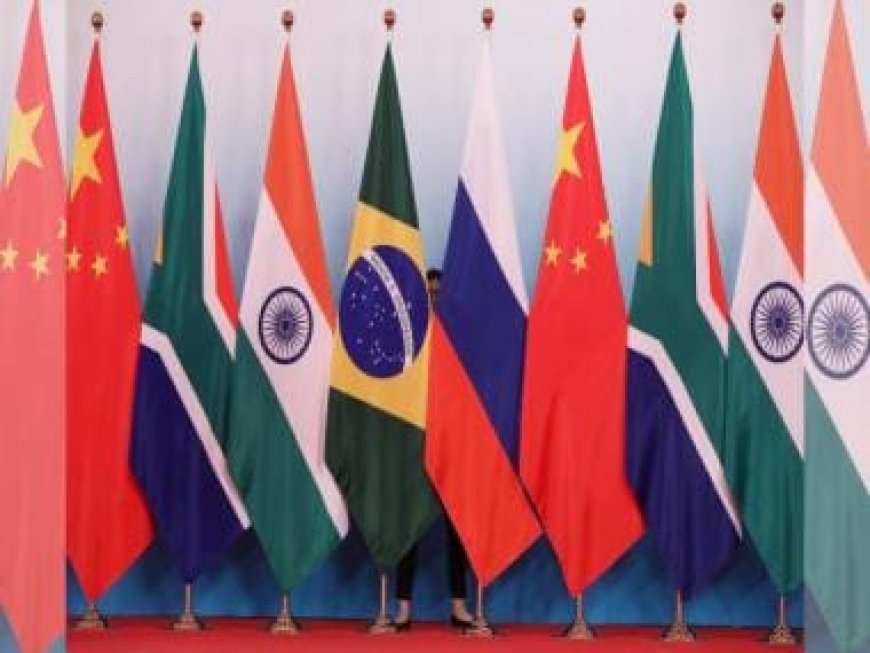'Strong enough now': Leaders of BRICS developing nations eye global geopolitical shift
'Strong enough now': Leaders of BRICS developing nations eye global geopolitical shift

Leaders of the BRICS developing economies, which account for almost a fifth of the world’s wealth, will gather this week in Johannesburg to expand the bloc’s clout and press for a shift in global geopolitics.
South African President Cyril Ramaphosa will welcome China’s President Xi Jinping, India’s Prime Minister Narendra Modi, and Brazil’s President Luiz Inacio Lula da Silva for the annual three-day summit, which begins on Tuesday.
Russian President Vladimir Putin will also participate remotely.
Putin opted not to attend in person since he is the subject of an International Criminal Court arrest order, which South Africa is obligated to implement if he enters the country.
Instead, Russian Foreign Minister Sergey Lavrov will fly to Johannesburg.
Representing billions of people across three continents, with economies undergoing varying levels of growth, the BRICS share one thing in common — disdain for a world order they see as serving the interests of rich Western powers.
“The traditional global governing system has become dysfunctional, deficient and missing in action,” Chen Xiaodong, the Chinese ambassador to Pretoria said at a briefing on Friday, adding the BRICS are “increasingly becoming a staunch force in defending international justice”.
There is growing interest in the bloc — at least 40 countries have expressed interest in joining, and 23 of those have formally submitted applications to become BRICS members.
‘Polarised world’
Anil Sooklal, South Africa’s ambassador-at-large for Asia and the BRICS, told AFP on Friday that one of the reasons countries are lining up to join is “the very polarised world we live in, that has been further polarised by the Russia-Ukraine crisis, and where countries are being forced to take sides”.
“Countries in the South don’t want to be told who to support, how to behave and how to conduct their sovereign affairs. They are strong enough now to assert their respective positions,” added Sooklal.
The BRICS have raised hope for countries looking to restructure the global “architecture”, he said.
“The major markets are now in the Global South… but we are still on the margins in terms of global decision-making.”
Lebogang Legodi, international politics lecturer at the University of Limpopo, agrees that many states keen on joining the group “are seeing BRICS as an alternative to the current hegemony” in world affairs.
Around 50 other leaders will attend a “friends of BRICS” programme during the summit, held at a convention centre in the heart of Johannesburg’s Sandton, historically referred to as the richest square mile on the continent.
This year’s gathering is themed “BRICS and Africa: Partnership for mutually accelerated growth, sustainable development and inclusive multilateralism”.
It comes at “a critical inflection point,” said Steven Gruzd of the Africa-Russia Africa project at the South African Institute of International Affairs.
“The current multilateral system is under strain,” he said.
A decision on expanding the BRICS membership is expected at the end of the summit, according to Sooklal.
An upbeat Ramaphosa told a meeting of the ruling ANC party in Johannesburg on Saturday that “we are going to have a fantastic BRICS summit”.
He said the presence of so many heads of state shows the influence and the impact that South Africa has on the world.
But experts closely watching the BRICS aren’t very optimistic about the meeting’s outcomes.
“I don’t think this summit will yield those dramatic results because the power is still with Western countries. China is rising, but is not the dominant power yet,” said SAIIA’s Gruzd.
Formally launched in 2009, the BRICS now account for 23 per cent of the global GDP and 42 per cent of the world’s population.
The combined bloc represents more than 16 per cent of the world’s trade.
What's Your Reaction?



























































